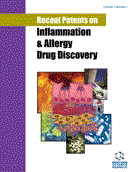Abstract
Background: No trial has examined the effect of lovastatin on the brain metabolites in patients with bipolar mood disorder.
Objectives: Current medications for treating bipolar disorders cause metabolic syndrome. It is supposed that lovastatin not only decreases the rate of metabolic syndrome but also impacts some brain metabolites and their ratio like common treatments that are measured by Magnetic Resonance Spectroscopy. Methods: 27 Manic phase patients were randomly allocated into two groups, lovastatin and placebo as their adjuant medication. Clinical symptoms were assessed at baseline, weeks 2, 4. The brain metabolites were measured at baseline and week 4. Result: Regarding the change of clinical symptoms, no significant difference was found between two groups. However, lovastatin significantly increased the level of NAA in cingulate gyrus in comparison to the placebo group. Moreover, lovastatin more than placebo increased creatine in the left basal ganglia. Furthermore, choline/ creatine showed a significant decrease in the left basal ganglia in lovastatin group. Conclusion: Using MRS after treating with lovastatin showed lovastatin increases NAA in cingulate gyrus, indicating the possible effect of NAA for increasing the reduced viable neuron. Moreover, the increment of Cr by lovastatin in the left basal ganglia suggests the role of lovastatin for maintaining energy homeostasis, anti-apoptotic activity and ATP production in bipolar disorder. Some patents using lovastatin as an adjuant therapy for treating bipolar patients and depression in MDD patients are also outlined. This trial was registered in the Iranian Clinical Trials Registry (http://www.irct.ir/) (IRCT201302203930N18).Keywords: N-Acetyleaspartate, bipolar mood disorder, choline, creatine, lovastatin, Magnetic Resonance Spectroscopy.
Recent Patents on Inflammation & Allergy Drug Discovery
Title:A Magnetic Resonance Spectroscopy Study of Lovastatin for Treating Bipolar Mood Disorder: A 4-Week Randomized Double-Blind, Placebo- Controlled Clinical Trial
Volume: 10 Issue: 2
Author(s): Mehrzad Lotfi, Sara Shafiee, Ahmd Ghanizadeh, Motahar O. Sigaroudi and Leila Razeghian
Affiliation:
Keywords: N-Acetyleaspartate, bipolar mood disorder, choline, creatine, lovastatin, Magnetic Resonance Spectroscopy.
Abstract: Background: No trial has examined the effect of lovastatin on the brain metabolites in patients with bipolar mood disorder.
Objectives: Current medications for treating bipolar disorders cause metabolic syndrome. It is supposed that lovastatin not only decreases the rate of metabolic syndrome but also impacts some brain metabolites and their ratio like common treatments that are measured by Magnetic Resonance Spectroscopy. Methods: 27 Manic phase patients were randomly allocated into two groups, lovastatin and placebo as their adjuant medication. Clinical symptoms were assessed at baseline, weeks 2, 4. The brain metabolites were measured at baseline and week 4. Result: Regarding the change of clinical symptoms, no significant difference was found between two groups. However, lovastatin significantly increased the level of NAA in cingulate gyrus in comparison to the placebo group. Moreover, lovastatin more than placebo increased creatine in the left basal ganglia. Furthermore, choline/ creatine showed a significant decrease in the left basal ganglia in lovastatin group. Conclusion: Using MRS after treating with lovastatin showed lovastatin increases NAA in cingulate gyrus, indicating the possible effect of NAA for increasing the reduced viable neuron. Moreover, the increment of Cr by lovastatin in the left basal ganglia suggests the role of lovastatin for maintaining energy homeostasis, anti-apoptotic activity and ATP production in bipolar disorder. Some patents using lovastatin as an adjuant therapy for treating bipolar patients and depression in MDD patients are also outlined. This trial was registered in the Iranian Clinical Trials Registry (http://www.irct.ir/) (IRCT201302203930N18).Export Options
About this article
Cite this article as:
Lotfi Mehrzad, Shafiee Sara, Ghanizadeh Ahmd, Sigaroudi O. Motahar and Razeghian Leila, A Magnetic Resonance Spectroscopy Study of Lovastatin for Treating Bipolar Mood Disorder: A 4-Week Randomized Double-Blind, Placebo- Controlled Clinical Trial, Recent Patents on Inflammation & Allergy Drug Discovery 2016; 10 (2) . https://dx.doi.org/10.2174/1872213X10666161028153258
| DOI https://dx.doi.org/10.2174/1872213X10666161028153258 |
Print ISSN 1872-213X |
| Publisher Name Bentham Science Publisher |
Online ISSN 2212-2710 |
 40
40 1
1 1
1 1
1Related Articles
-
Zinc and Copper Homeostasis in Head and Neck Cancer: Review and Meta-Analysis
Current Medicinal Chemistry Potential Health Benefits of Berries
Current Nutrition & Food Science Bone Marrow Stromal Cells as Targets for Gene Therapy
Current Gene Therapy Neurological Substrate of Central Auditory Processing Deficits in Children
Current Pediatric Reviews LRIGs: A Prognostically Significant Family with Emerging Therapeutic Competence against Cancers
Current Cancer Drug Targets The Challenges of Blood Pressure Control in Dialysis Patients
Recent Advances in Cardiovascular Drug Discovery (Discontinued) n-3 Polyunsaturated Fatty Acids and the Prevention of Colorectal Cancer: Molecular Mechanisms Involved
Current Medicinal Chemistry Sphingolipid Metabolism and Leukemia: A Potential for Novel Therapeutic Approaches
Anti-Cancer Agents in Medicinal Chemistry From the Editors Perspective: Aquaporins to Apoptosis
Current Neurovascular Research Estrogen Receptor Beta in Cancer: an Attractive Target for Therapy
Current Pharmaceutical Design A Medicinal Chemist’s Perspective Towards Structure Activity Relationship of Heterocycle Based Anticancer Agents
Current Topics in Medicinal Chemistry Clinical Considerations of Focal Drug Delivery in Cancer Treatment
Current Drug Delivery Immuno-Isolation in Cancer Gene Therapy
Current Gene Therapy Vascular Toxicity of Chemotherapeutic Agents
Current Vascular Pharmacology Spinophilin: A New Tumor Suppressor at 17q21
Current Molecular Medicine Glucose Transporters in Sex Steroid Hormone Related Cancer
Current Vascular Pharmacology Molecular Pharmacology of Malignant Pleural Mesothelioma: Challenges and Perspectives From Preclinical and Clinical Studies
Current Drug Targets Nitric Oxide: Target for Therapeutic Strategies in Alzheimers Disease
Current Pharmaceutical Design Metabolic Targets of Cardiac HormonesTherapeutic Anti-Cancer Effects
Current Pharmaceutical Design Polycystic Ovary Syndrome in Adolescents
Current Women`s Health Reviews



















